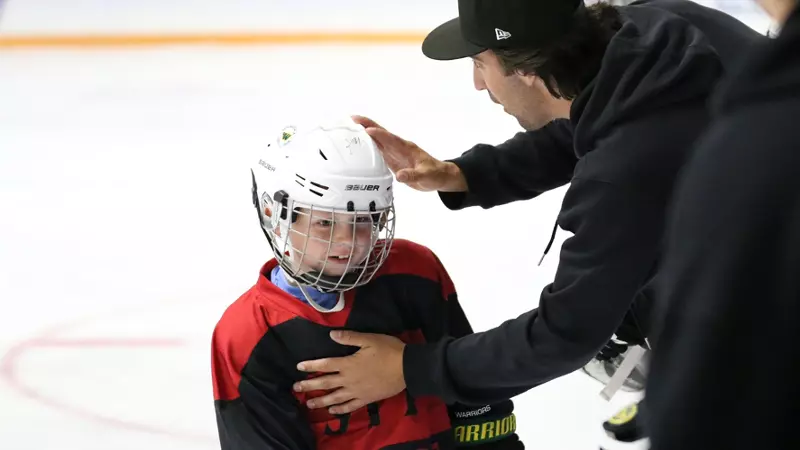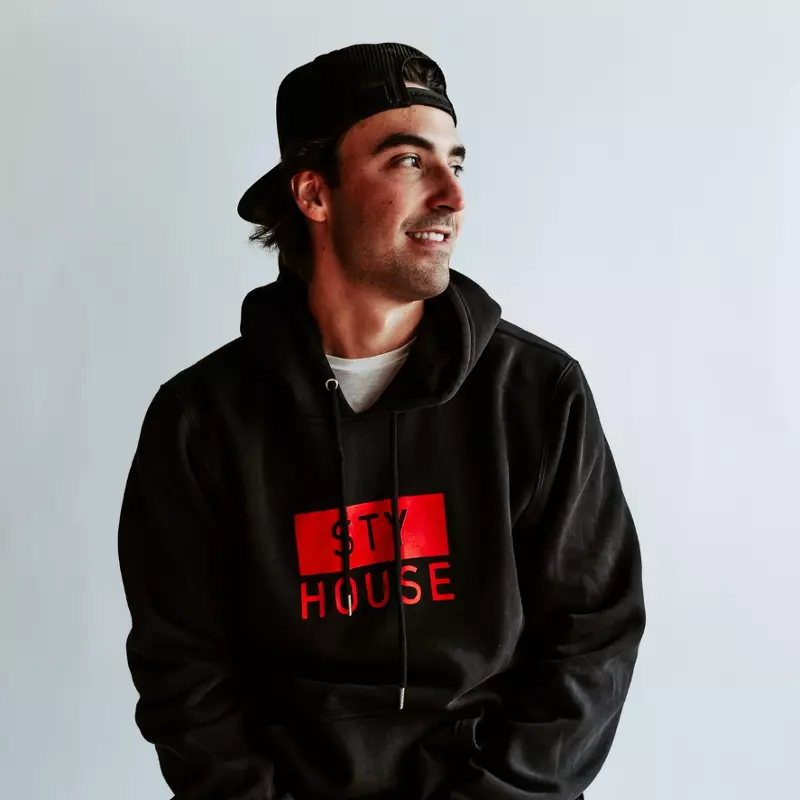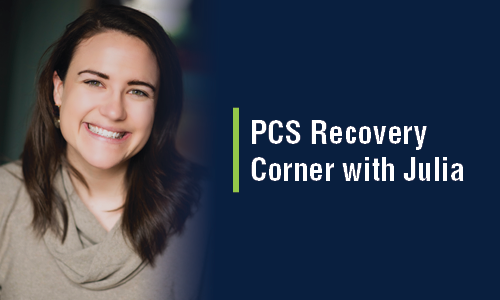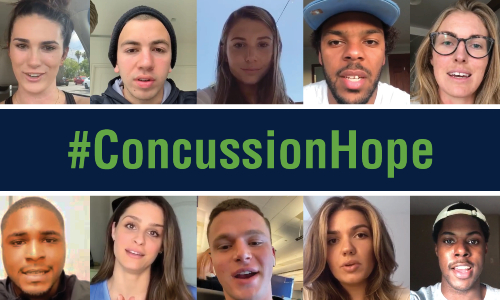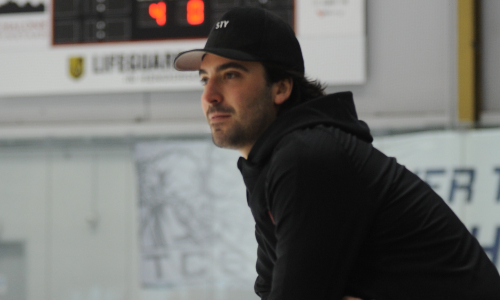
“Be smart about anything related to your head. And as soon as something doesn’t feel right, you have to let someone know.”
That’s the message Lewis Simon has for his younger self. Now 23 years old, it’s something Lewis didn’t realize the importance of until a few years back, when a doctor told him he could no longer play the sport he loved because of concussions.
As a kid in Chicago, Lewis had one goal: become a professional hockey player and play in the NHL. He was a passionate, fearless, and aggressive player who had all the tools to make his dream a reality. If anyone was set up to succeed, it was Lewis. He started playing hockey at five years old and never looked back. He realized his potential at a young age when making sacrifices none of his peers had to make, such as missing out on school events.
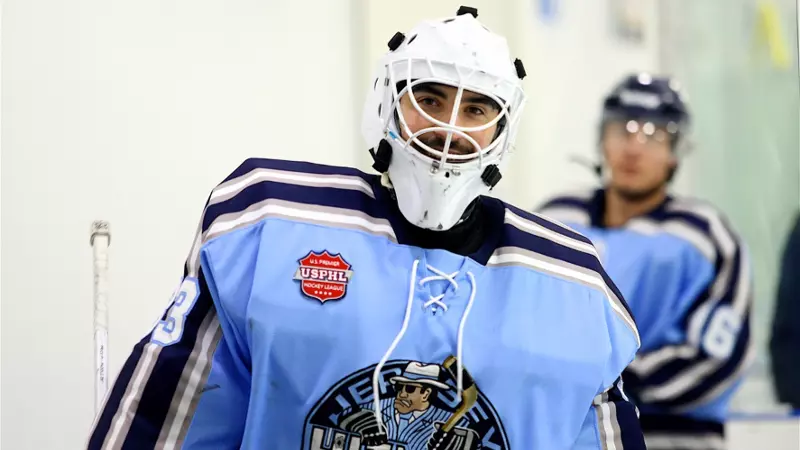
“I knew since high school this is all I want to do,” said Lewis. “I’m going to play Division I, I’m going to the NHL, I’m going to do whatever it takes to pursue the dream.”
The pace really started to pick up after Lewis dropped lacrosse as a freshman in high school to focus solely on hockey. Then came a move to Pittsburgh as a junior to join a high-level travel AAA team to fast track his development and prepare him for a future playing career. But a severe traumatic brain injury (TBI) and lingering symptoms threw a wrench in those plans.
And though Lewis certainly suspects he experienced a few concussions growing up, they all went undiagnosed and largely untreated. There were days he’d be dizzy and sapped of energy, feeling like his head was in the clouds.
“Looking back, I was a very aggressive player and definitely had been concussed in the past,” said Lewis. “I just never knew because I didn’t have the proper education, or the trainers would simply clear me. There was no guidance.”
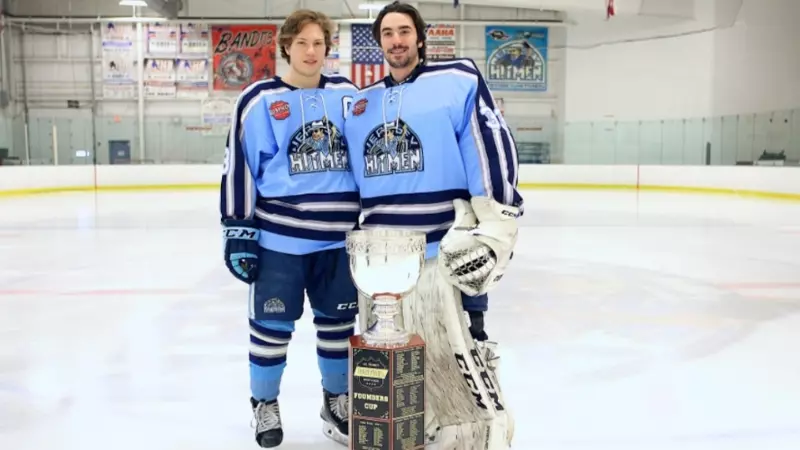
It was a vicious cycle. Lewis would take a big hit, get checked out, rest in bed for a week in the dark, fudge through medical forms saying he was better, and then be cleared to play again. Finally, after his third diagnosed concussion at the age of 21, a doctor handed him the news that ended his career.
Without hockey, Lewis felt lost. He needed to recover from his injuries but was still at an age where he wanted to be active, be social, and have fun with his friends. He spent six months in Rochester, NY without a degree, a job, and any college credits. His daily life consisted of going to the rink to watch his teammates, return home to play Xbox, then sleep.
“Those were the dark times for sure,” said Lewis. “I was able to act normal and like I was OK, even though I was miserable inside. If I were to do it over, I would’ve pulled the plug after the first month and gone home and recovered, but I thought being out there, I was doing the right things and I wasn’t.”
Lewis tried different doctors, including multiple vestibular therapists, until he found care that helped him feel better. He thought he could push through and continue playing one day. Ultimately, Lewis decided to put an emphasis on his future and retired from hockey.
Surprisingly, Lewis felt at peace with his decision. Being the driven person he is, Lewis immediately set out to reach his new goal of getting into the one school he always wanted to attend: Northwestern University. This time, no bad news. He was accepted.
Now enrolled at Northwestern, Lewis has kept his passion for hockey alive as a youth coach. And in addition to juggling classes and coaching, he has made time for another pursuit: his own youth apparel company called STY House. Lewis started STY, or Strengthen the Youth, in 2021 as a way to address the effects of concussion in youth athletes. An aficionado of all things apparel, Lewis originally imagined the brand as STYLE House, for men. But he wanted to use his platform for a mission he was passionate about, which led him to STY House. He has since partnered with CLF and donates a portion of his sales to our organization.
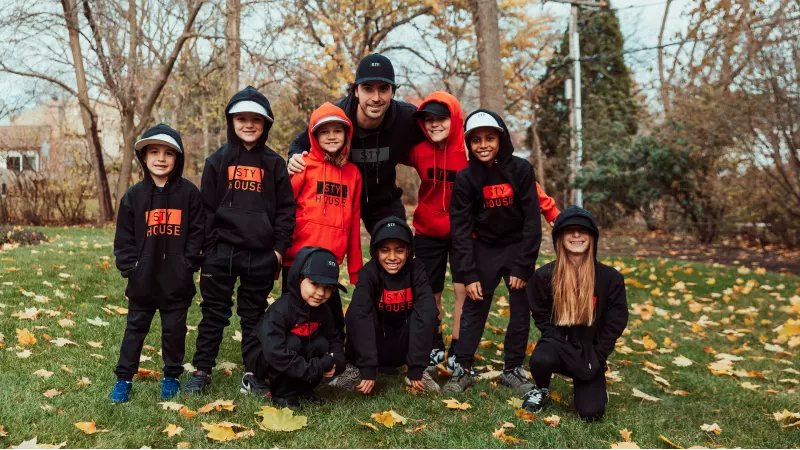
At his worst, Lewis said he was fighting his concussion symptoms the majority of the week. These days, Lewis’s symptoms come and go; he has both good and bad weeks. He is able to manage mostly by knowing what triggers his symptoms and doing his best to avoid those triggers. Some of these include bright lights, large crowds, and driving at night. He prioritizes getting an adequate amount of sleep, exercising, and eating right. Though he is still busy with school, coaching, and his business, he stays aware of his limits to keep his symptoms in check.
